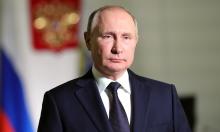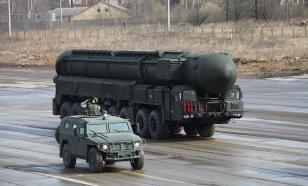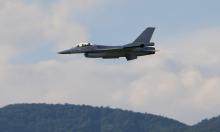Ukrainian people turned into animals
Russia's Chief Sanitary Doctor has made another notorious statement. Gennady Onishchenko said that Russia could ban Ukraine's agrarian products from the Russian market. The statement was made after the powers to control foodstuffs and nourishment in Ukraine were supposedly transferred to the veterinary service of the country.
"In Ukraine, the powers to control food and nourishment, including in the organizations for children, have been handed over to the vet service. De facto, it means that the Ukrainian citizens have been taken for animals. In Ukraine, like in the rest of the world, the law stipulates that people's health condition shall be observed by other people who have special medical education. It is an open secret that 70 percent of all diseases are related to food," Gennady Onishchenko told Interfax news agency.
It appears that Mr. Onishchenko worries a lot about both Russian and Ukrainian citizens. He urged the Ukrainian parliament to block the reform and threatened the country to take extreme measures in case the latter refuses to obey him. The Russian Chief Sanitary Doctor believes that Russian children should no longer travel to Ukraine's resorts because they would have to deal with veterinary specialists rather than qualified doctors.
Onishchenko's Ukrainian counterpart, Ivan Bisyuk, stated later that the information, which Onishchenko voiced in his statement, was not true to fact. According to Bisyuk, the reform of the food industry of Ukraine did not mean that Ukrainian vet specialists would be in charge to control the products of herbal origin or special diet and children's food.
The Ukrainian authorities paid attention to the condition of the national food industry in the fall of 2011. The country attempted to arrange the export of the Ukrainian agricultural products in the European Union.
The Europeans demand strict organization of quality control. It is therefore easiest for Ukraine to simply copy the European control system. This would also correspond to Ukraine's European development vector since the country looks up to the free trade zone with the EU.
As experience shows, Mr. Onishchenko's concerns about the quality of Ukrainian food imports can be explained with the influence of political and economic interests, rather than the effects that microorganisms can cause. The remarks from the Chief Sanitary Doctor of Russia look like the beginning of the trade war between the two countries.
The current relations between Russia and Ukraine are currently centered on the issues of the organization of the joint economic space and tariff regulation. Kiev, for example, ponders over the idea of raising the duties on the import of certain goods to Ukraine to please local producers. This move may not be good for Russian producers, though.
In March, for example, Ukraine is expected to complete the special investigation about car imports. Ukrainian car-makers offer to introduce the duty of 33.4-47 percent (instead of the current 10 percent) depending on the engine volume.
In the meantime, the sales of new cars in Ukraine have increased by one-third during the past year. Most of those cars were imported from Russia. There is also the never-ending natural gas issue, which many like to intertwine with a variety of other subjects.
"We will begin to meticulously observe the deliveries of the entire segment of agrarian products from Ukraine. First priority attention will be given to dairy products. We will take toughest measures in case the quality of the products worsens. Small business of Ukraine will suffer in the first place - those companies ship their products to border regions and Russian cities," Gennady Onishchenko said. The Chief Sanitary Doctor most likely referred to the recent scandal with the dairy products from Finland.
It is worthy of note that Mr. Onishchenko should pay more attention to the Russian food market, which is indeed capable of turning many Russian people into animals. High-quality food products are rare in Russia and Ukraine. This has been proved with both countless independent analyses and consumers' stomachs.
Ukraine and Russia go hand in hand when it comes to the reform of the control system. The two countries are in the process of introducing the HACCP system (Hazard Analysis and Critical Control Points), which controls the quality of products during all production stages. The standards are not good for controlling foreign-made food, which is a positive factor for those companies that supply their products to the markets of Russia and Ukraine.
It goes about the introduction of technical regulations, the replacement of mandatory certification with common declaration, etc. To put it in a nutshell, they intend to lift many barriers on the way of business to profit and on people's way to their graves. Ukraine particularly cancels the certification of various types of food products slowly but surely.
Boris Yaremenko.
Subscribe to Pravda.Ru Telegram channel, Facebook, RSS!




